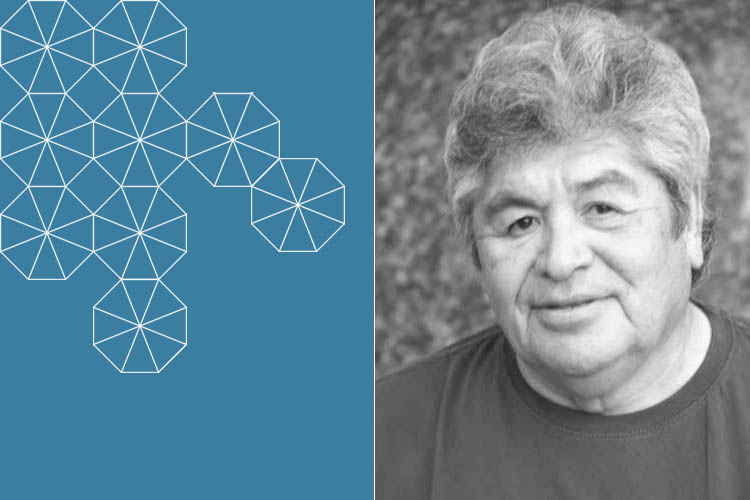Joseph Myers, Native American scholar and activist, dies at 80
UC Berkeley lecturer leaves "a legacy of service and commitment"

January 7, 2021
Joseph Myers, a stalwart and uncompromising champion for Indigenous communities in California and a UC Berkeley lecturer for nearly 30 years, died on Dec. 29, 2020, from complications related to his heart.
Myers, who taught in the Department of Ethnic Studies, worked to develop unique course content focused on Native American issues, teaching classes on federal Indian law and tribal governments.
Department chair and professor Juana Maria Rodríguez said Myers was an inspiring educator known for his good sense of humor, generosity and sparkling wit.

UC Berkeley lecturer Joseph Myers died last month after dedicating his life serving and advocating for Native American communities.
(Photo courtesy of Joseph A. Myers Center for Research on Native American Issues)
“Joe offered his students support and encouragement in a way that only he could,” said Rodríguez. “He shared his vast knowledge of federal Indian law, his deeply valued cultural wisdom and his lifelong dedication to education with our ethnic studies community.
“He has left us with an incredible legacy of service and commitment, and he will be missed by all who have been touched by his indomitable spirit.”
A Pomo Indian from Northern California, Myers was born on Jan. 16, 1940, in Cloverdale. He began his career as a law enforcement officer in Oakland and was one of the first known California Indians to join the California Highway Patrol.
In 1975, he graduated from the UC Berkeley School of Law and began to serve as associate director of the American Indian Lawyer Training Program, where he collaborated with California Indian Legal Services to bring a lawsuit against the federal Bureau of Indian Affairs on behalf of his mother, Tillie Hardwick.
The case reversed the termination of over 15 Indian rancheria communities in California and has been used as jurisprudence for countless other litigation cases that have reinstated tribal statuses.
In 1983, he founded the nonprofit National Indian Justice Center in Santa Rosa to help tribal governments conduct legal education, research and technical assistance programs to advocate for victims of crime in Indigenous communities.
For that work, Myers received national recognition in 1993 from then-Attorney General Janet Reno. On Dec. 6, 2002, the California Wellness Foundation awarded him the annual California Peace Prize for his work in violence prevention on Indian reservations, and in 2010, Myers received Berkeley’s Peter E. Haas Public Service Award.
As president of the board of directors of the California Indian Museum and Cultural Center in Santa Rosa, Myers also helped to preserve Native American artifacts and history for the next generation.
“We are devastated by this loss,” said a statement released by the California Indian Museum and Cultural Center. “He was a fearless leader and educator. He was dedicated to public awareness of California Indian history and cultural revitalization.”
The Joseph A. Myers Center for Research on Native American Issues, a program housed at Berkeley’s Institute for the Study of Societal Issues, was named in his honor to recognize Myers’ extensive service to Native American communities.
Myers’ longtime friend and fellow Berkeley graduate LaNada War Jack, a writer and activist, said Myers “had great compassion for his California and Native people.” As a member of the tribal council of the Shoshone-Bannock Tribes, War Jack said she would often seek legal advice from Myers, as he was someone she could trust.
“He leaves his legacy with his daughters and community,” said War Jack, who in 1968 became the first Native American student admitted to Berkeley. “Many blessings and condolences for Joe, as he has joined the ancestors in spirit world. Sending my love and prayers for my friend Joe.”
A public viewing, by appointment, will be held from 11 a.m. to 1:30 p.m. on Friday, Jan. 8, 2021, at Eggen & Lance Chapel in Santa Rosa. Schedule a time to attend the viewing.